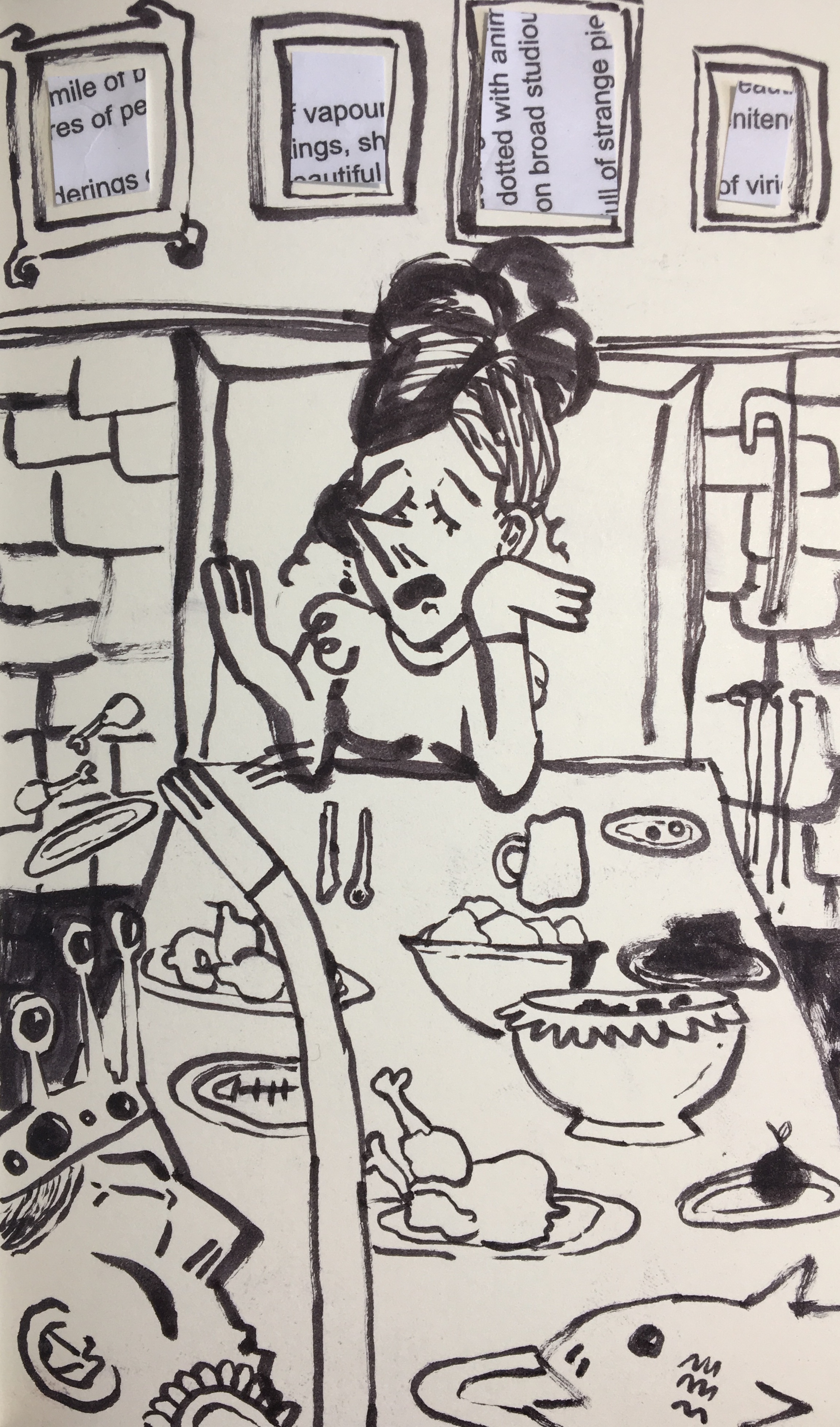Am starved for meat, giddy for lack of sleep, With oath kept waking and with brawling fed:

Am starved for meat, giddy for lack of sleep, With oath kept waking and with brawling fed:

Am starved for meat, giddy for lack of sleep, With oath kept waking and with brawling fed:
The illustration depicts Katherine being starved by Petruchio in an attempts to tame her attitude. Katherine is sitting at the long dinner table as depicted in the movie with her food being slapped away from her by Petruchio.
JetLee C. Sydney L.
The Taming of the Shrew appears to be one of Shakespeare’s more complex comedies. The play commences with an induction that describes what is really happening in reality, and then continues on to become a play within a play. Christopher Sly, a poor drunkard, begins the play and of course, he is drunk. Shakespeare’s irony is not lost on the audience with this character considering he is a drunk, who has no money to afford his addiction, and unfortunately any money he could ever make would go to feeding his habit. As per usual, Sly ends up passing out somewhere from his various drunken excursions. Unfortunately for him, while he is passed out, a lord who is the exact opposite of Sly, sees him lying somewhere and decides to play a little game with him. When reading the induction, it seems as if there is more to say about the story between Sly and the lord; however, once the induction ends, there is no more said about these two characters or anything in their reality. Almost as if Shakespeare’s goal was to coax the audience into watching or reading a play that they wouldn't necessarily be interested by reeling them in with another. The way that “The Taming of the Shrew” begins adds a sinister yet comical theme to the beginning of the play. It is depressing that it takes so long for the lord to convince Sly that he is a nobleman. Sly has just been poor and lonely for a long period of time, so it seems unreal that something so good could happen to him. The lord says, “Call home thy ancient thoughts from banishment, And banish hence these abject lowly dreams” (Ind. scene 2 lines 30-31). Christopher Sly has been poor for so long that the idea of that life all being a dream seems impossible to fathom. When the lord says this, he makes it seem as if Christopher Sly is safe with him, as if he belongs there. He uses the word “home” to imply a sense of peace and support that a true safe haven could provide. Interestingly enough, as soon as the lord convinces Sly of his “real” status, Sly automatically takes his “rightful” place as a true nobleman. It doesn’t seem to bother him that the lord has been referring to his lifestyle as beneath him and implying that what he had recently experienced was just a “lowly dream”. However, Sly does not hesitate to start acting like a nobleman as soon as he starts to believe the lord. He seems to just flip a switch that allows him to easily play the part of a wealthy and pompous ass who doesn’t care about others. After the lord convinces Sly, Shakespeare swiftly transitions into the play that is “The Taming of the Shrew”.